Heart
The heart is a muscular organ that pumps blood throughout the body via the circulatory system. It is located in the chest, slightly to the left of the midline, and is protected by the rib cage.
Anatomy of the Heart
The heart is divided into four chambers: the left atrium, left ventricle, right atrium, and right ventricle. The atria receive blood from the body and lungs, while the ventricles pump blood out to the body and lungs.
The heart is also made up of specialized cardiac muscle cells, valves, and a conduction system that coordinates the heart's rhythmic contractions.
Function of the Heart
The main function of the heart is to pump oxygenated blood to the body's tissues and organs and to pump deoxygenated blood to the lungs for oxygenation.
Cardiovascular System
The heart works in conjunction with blood vessels, such as arteries, veins, and capillaries, to form the cardiovascular system. This system transports oxygen, nutrients, hormones, and waste products throughout the body.
Study Guide
- What are the four chambers of the heart?
- Describe the function of the heart.
- Explain the role of the cardiovascular system in the body.
- Draw and label a diagram of the heart, including the chambers and valves.
- Discuss the importance of the conduction system in the heart's function.
◂Biology Worksheets and Study Guides High School. Plant structure and function
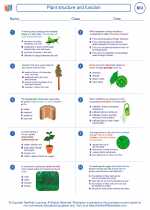
 Worksheet/Answer key
Worksheet/Answer key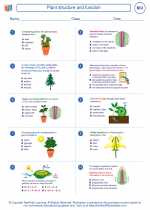
 Worksheet/Answer key
Worksheet/Answer key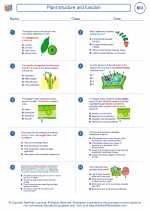
 Worksheet/Answer key
Worksheet/Answer key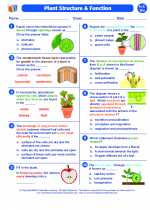
 Vocabulary/Answer key
Vocabulary/Answer key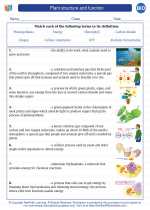
 Vocabulary/Answer key
Vocabulary/Answer key
